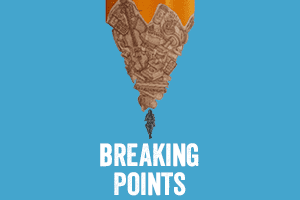This article is part of a series on navigating teens stress and anxiety, a common reason for substance use. Find the full series at Stress & Drug Use: What Every Parent Should Know.
Taking time to appreciate the goodness in our lives, helps us feel more positive emotions, rather than negative feelings like stress, anxiety and depression. In fact, research shows it actually helps develop neural pathways that make us happier and more optimistic.
Research conducted by Greater Good Research Center (GGRC) at University of California, Berkeley, shows the benefits of a grateful mindset are profoundly social. The research finds that grateful people have stronger relationships, are less materialistic, and are more generous. Grateful adolescents have more positive attitudes toward their families and schools, and are more motivated to contribute to society.
According to GGRC, gratitude frees people from getting bogged down by anger and ruminating on all that has gone wrong and helps us recognize the forces and people who have actually helped to bring more good into our lives. That can boost our feelings of self-worth and motivate us to believe that more change and goodness is actually possible.
Thinking of others offers a fresh perspective and can help teens get out of their head, helping to alleviate stress and worry in their lives and make them feel more at ease.
So teach your teens to count their blessings – it will provide a deep emotional connection to others, lessen the burden of stress overload that they’re experiencing and help them feel more optimistic and happier.
The following are four gratitude practices from mindfulness expert Cheryl Vigder Brause. Try doing them together with your teen. You may get some eye rolling at first, but keep trying.
Gratitude Jar
Any time you experience a moment of gratitude write it on a piece of paper and put it in a Gratitude Jar. Periodically, empty the jar and read what you wrote. Notice how it feels to write it down and to reread it. This exercise helps us savor moments of gratitude and motivates us to look for more.
Give Thanks Out Loud
We all have many moments throughout our day when we can offer a heartfelt “thank you” to someone in our life — a friend, a stranger, a child. Notice those moments and give a heartfelt “Thank you!” to that person. Did your teen take out the garbage or walk the dog? Parents can thank a child for their good behavior, which will model gratefulness and show gratitude in action. Acknowledging good behavior is a win-win. When sharing your gratitude, notice how you feel and take a moment to notice how that pleasant feeling spreads to the person you thank.
People Who Make a Difference
Identify someone who did something you feel grateful for. Then:
- Close your eyes, and take five deep, slow breaths, in and out.
- Bring to mind an image of the person.
- Hold that image while breathing deeply.
Notice how it feels to hold that person in your attention. Focus on the feeling of gratitude you have for this person while you take five more deep breaths, in and out. Simply notice how you feel.
Acts of Kindness
We often feel grateful when others do things for us that show kindness, caring and helpfulness. But there are also times when you have done things that are kind, caring and helpful to someone else. Close your eyes and take a few deep breaths.
- Think of someone that you have been kind to or someone you helped. Maybe it is someone who said “Thank you” to your recently. Try to see a picture of that person in your mind.
- Remember what you did for that person that was kind or caring or helpful. See yourself doing it.
How do you feel inside? What is the other person saying or doing when you are kind to them? How does that feel to you?
Key takeaways
- Gratitude practices create an opportunity to focus on what we have to be thankful for.
- When we choose to do something that benefits others, we often benefit ourselves emotionally.
- Show your teen some exercises that help her or him feel grateful.
- If you are feeling overwhelmed or have a question about your child’s drug or alcohol use, connect with one of our parent specialist.
- If your teen is experiencing anxiety, depression, insomnia, attention disorders or suicide, seek out professional help.

Bring BREAKING POINTS to Your Community
Host a screening of BREAKING POINTS, a documentary film that takes on the issue of study drugs and how they intersect with school stress. The package includes a Screening Guide with discussion questions and other bonus materials.
We are grateful to Cheryl Vigder Brause, writer, speaker and the co-founder and executive director of 2bpresent, for sharing her insights and expertise with us. We also thank Greater Good Science Center for their research and gratitude exercises.
 Get Support
Get Support
